GARDEN NOTES:



APARTMENT

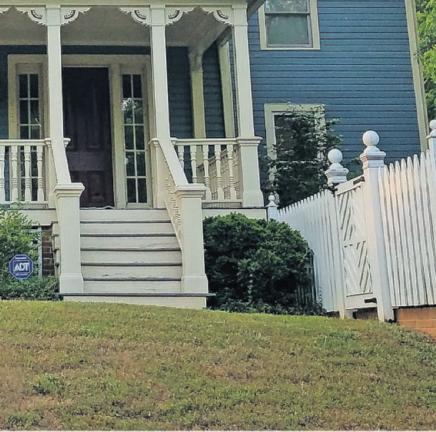


GARDEN NOTES:



APARTMENT



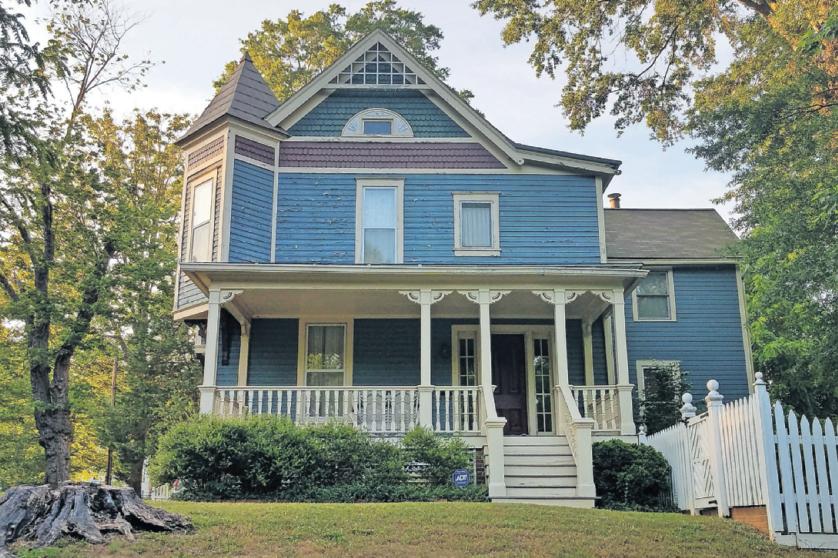
Victorian architecture has often been linked to horror, with houses portrayed in “Psycho,” “The Addams Family,” and more. Experts have ideas about what makes these houses seem so “haunted.”
THE FEATURES THAT define Victorian archi tecture — bright colors, intricate woodwork, dramatic roofs — sound cheer ful enough. So why has the style popularized in the 19th century become so thorough ly linked to horror? With the menacing secrets of Norman Bates’s house in “Psycho,” the more slapstick spookiness of “The Addams Family” mansion and more, the visual language of the haunted-house genre is undeniably inter twined with the turrets, trims and nooks of the Victorian.
Sarah Burns, a professor emerita at Indiana University, is probably the foremost expert on how Victorians became “an enduring icon of the haunted,” as she puts it. “It goes all the way from cinema to archi tecture to mass culture,” she says. “You see these attitudes toward the Victorian manifest
in every medium.”

Here’s why.

The layout of a Victorian is about as far from an open floor plan as a house can get. Every level is divided into many rooms, each with a distinct purpose, and rarely with sight lines into another one.
The effect is “almost an infinite labyrinth,” says Adam Lowenstein, author of “Horror Film and Otherness” and a professor of English and film at the University of Pittsburgh. The luxuries of ample space and a room for every occasion can easily turn into a “night mare version of the utopian idea,” he explains: “a labyrinth of spaces that are out to get you rather than out to serve you.”
On a practical level for filmmakers, the corners and long hallways of the Victorian create opportunities for jump scares — or at least the threat of them. Laurin Kelsey is the production designer for “The Midnight Club,” the new Net flix thriller set in a Victorian manor called Brightcliffe. She created a layout for the home with “long hallways and creepy hallways,” she says. “The main hallway in Brightcliffe has these big round arches all the
way down, ... and behind each of those arches is enough space for someone to hide.”

Building materials favored in the Victorian era, such as dark wood, also help conjure a macabre atmosphere. “The rooms felt really heavy and dark and kind of foreboding,” Kelsey says. The era’s char acteristic stained glass and thick draperies added to the ominous vibe, but they actually had a utilitarian purpose, too: They protected elaborate furni ture and decor from the sun. In urban dwellings, the curtains helped insulate interiors from street odors.
Another nightmarish thing about Victorians is the intense maintenance required to keep up such grandiose homes. For the burgeoning middle class that favored the look in the 19th century, it was a flex to be able to hire servants who could dust and polish all the ornate details. But when the style’s popularity waned and those homeowners moved on, the neglect was all the more apparent. Cue the cobwebs and crumbling exteriors that have become horror-movie touchstones.
“Victorian houses don’t age well,” Lowenstein says. “The



Above, a Victorian home is pictured in the 1980s. Mysterious banging and groaning inside the walls, for example, could be a restless spirit — or perhaps badly installed pipes. The creaking of floorboards might be footsteps from beyond the grave — or the expanding and contracting that occurs in poorly built structures. Doors that popped open by themselves could have been pushed by phantoms — or maybe they just didn’t fit properly in their frames.
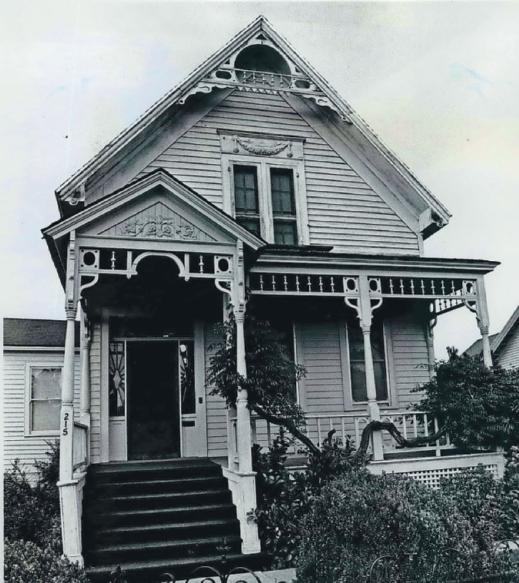
image of the haunted Victo rian house probably has real reference in all kinds of Amer ican neighborhoods where these ornate houses lost their
wealthy tenants and became sort of neglected, derelict houses that looked haunted because they weren’t
TWO EMOTIONS
well up in me when I smell burning leaves this time of year. At first the aroma transports me back to the autumns of my childhood when leaf-burning was an annual, pleasant ritual.

A return to the pres ent brings on the second emotion: frustration. What a waste! Tree roots extract minerals from deep within the earth’s innards, miner als which could be used to nourish garden plants (or the trees again, as occurs in natural environments).
Also, as leaves decompose they become humus, which fosters growth of a wide array of soil microorganisms and makes soils spongy and therefore better able to provide roots with water, air, and food.
So rake leaves if you must, but think of alternatives to burning them. For instance, you can make good use of leaves by doing no more than raking them right on
top of vegetable and flow er beds. Not only will the leaves enrich the soil, but they’ll also smother weeds.
Next spring, you can set transplants and sow large
Piles of leaves are apt to blow around a bit until a few fall rains mat them down against the soil. If a few stray leaves disrupt the tidi ness of your yard, lay a cou
top the soil, dig or till, then pile on another half-foot of leaves and dig or till again. Or else sweep the leaves into the compost pile. Or, make a separate “leaf-mould pile” in an out-of-the-way corner. Building a leaf mould pile entails nothing more than piling each seasons accumu lated leaves in an enclosure and shoveling out the rich humus a couple of years later.
A few “don’ts” about using leaves ... Not all biennial and perennial garden flowers take to having a thick blan ket of leaves covering their crowns through the winter.
seeds right through the leafy covering.
Pull back the leaves to expose the soil before sow ing small seeds, or planting those few crops — melons and okra, for example — that require a thoroughly warmed soil.
If you pile leaves on the vegetable garden thick ly enough, you can leave carrots, beets, and turnips in the ground through the winter, and dig them at your leisure from unfrozen ground until spring.
ple of tree branches or throw a few shovelfuls of dirt on top of the raked leaves to hold them in place. Leaves that have been shredded with a couple of passes of the lawnmower or or a bona fide garden shredder will also stay put as the frayed bits of leaves stick together and readily absorb rain.
If you’re really adamant about fall cleanup and want all leaves out of sight, handdig or rototill them into vegetable and flower beds.
Pile a half-foot of leaves on
In many cases, raking leaves is unnecessary. There’s no good reason to strive for bare soil beneath trees which cast shade too dense for grass. After all, what is the forest floor like? That ground is continuously enriched by old, decom posing leaves, replenished as each year’s new “crop” floats down in autumn. If you’re raking leaves, do not rake away them from trees, shrubs, and hedges; rake them under these plants.
Native plants like hem locks, beeches, rhododen drons, and mountain laurels especially benefit from a year-round leafy soil cover ing, whether the plants are growing in the forest or your front lawn.
The crowns of flower plants like Canterbury bells, coral bells, coreopsis, delphini um, foxglove, pansy, poppy, and sedum are apt to rot under such conditions. But even these plants bene fit from having autumn’s leaves tucked right up to their crowns. Also, don’t pile leaves high against tree trunks, or the trunks them selves are apt to decompose along with the leaves.
And watch out for rodent feeding on woody plants growing in thick mulch; these critters also enjoy the soft, protected environment in a thick bed of leaves.
Leave a ring bare of leaves around the bases of these plants and put some plastic or metal mesh around the lower part of trunks to keep animals at bay.
Any gardening questions?
Email them to me at garden@ leereich.com and I’ll try an swering them directly or in this column. Come visit my garden at www.leereich.com/blog.
(JOSHUA GUNTER / CLEVELAND.COM) Lee Reich | In the GardenBerkshire Botanical Garden presents these upcoming pro grams:

WHEN TOMMY
• “Rendering Notes from Nature,” Monday through Nov. 2, 10 a.m. to 4 p.m. Taking place over three sessions, this series will teach you to make your own nature note cards to capture moments of nature with pen and color. Follow along with bo tanical artist Carol Ann Morley as she instructs how to illustrate images. Photo images of nature will be supplied. You may also add your own images, words and ideas. All levels of drawing experience are welcome. A materials list will be provided. Cost is $200 members, $255 nonmembers.
Financial aid is available for all Botanical Garden classes. For more information, contact Director of Education Bridgette Stone at bstone@berkshirebo tanical.org. For more informa tion, and to register for these classes, visit berkshirebotan ical.org. Botanical Garden is located at 5 West Stockbridge Road.
The Wilbraham Garden Club will meet on Nov. 2 at 10:30 a.m. at the St. Cecelia’s Parish Center on Main Street. Coffee, tea, and pastries will be served.
Ellie Roden, a pressed flow er artists from Vermont, will speak. Roden’s art pieces, con sisting of notecards, bookmarks and framed art, will be available for purchase.
Send items for Garden Notes to pmastriano@repub.com two weeks prior to publication
Stella and his cousin found an affordable house for rent in their area of Upstate New York, it felt like they’d hit the jackpot. Their imaginations ran wild: They’d have enough space for a dedicated work-from-home office, they could have a video game room and even dinner parties, 28-year-old Stella said.
Stella contacted the land lord named on the listing and quickly got an email back. “I am very new in this landlord business,” the person wrote, according to emails Stella shared with The Washington Post. “We are not after the money, but want it to be clean and for you to take it as if it were yours.”
The purported landlord, who identified himself as a Catholic missionary, sent over a list of “application questions,” including whether Stella agreed to send a $1,000 security deposit before moving in. No problem, Stella responded, but could they tour the house first?
Then he got suspicious. He Googled the house’s address and found it for sale on Zillow. His “landlord” was a scammer that had pulled the home’s photos and details from a legitimate listing. It wasn’t the only fake listing Stella came across in his hunt for an affordable place to live, he said. Today, navigating real estate scams is part of the process for prospective rent ers looking for homes online. And the sustained spike in housing prices amid inflation and supply problems makes people more vulnerable as they scramble to find some thing within their budgets, fraud experts say.
Average rent in the United States grew 9.2% during the three months ended June
30, compared with the same period last year, according to data from commercial real estate company CoStar. In large metropolitan areas, the pop in rent prices is even more pronounced: The aver age rent in Manhattan broke $5,000 a month this year.
When potential renters come across an apartment listed for a good price, they might feel like the clock is tickingand that works in scammers’ favor, says Kelly Merryman, president and chief operating officer of digital safety com pany Aura.
“Scammers are feeding on people who are anxious and want a better deal,” Merry man said.
Take Kate Coley, who in summer of 2020 was desper ate to find a place of her own after hunkering down at her parents’ house during the early months of the pandem ic. The new college graduate found an apartment in the exact Chicago neighborhood she wanted listed on a real estate rental site for a good price. When the “landlord” said she’d need to send her deposit and the first month’s rent right away because de mand for the unit was so high, her excitement won out.
She lost around $2,000.
“I thought I was smart enough to know the differ ence between a real apart ment and a scam apartment,” Coley said.
Nobody’s safe from real estate scams. But with a few safeguards, you can sidestep online fraudsters as you look for your next place to live.
• Google the address: If you punch the unit’s address into a search engine, you’ll probably see listings on other real estate sites. Check to see if the landlord or real estate agent’s name matches on each one. (If it doesn’t, your “landlord” might be spoofing a legitimate listing.)
If you’re looking at a unit for rent and see it listed for sale
on a different site, that’s also a red flag.
• Verify the lister’s iden tity: If you’re dealing with a landlord, check for proof they own the property by contact ing the local tax assessor’s office or county clerk.
If the unit was listed by a real estate agent or property manager, ask which company they work for and look for their name and image on that company’s website. The agent or company should have on line reviews, as well. If you’re feeling anxious, feel free to contact the company and ask if the agent or manager works there. And you can always look up someone’s real estate license by asking for their license number and cross checking with your state’s licensing authority. Remem ber: Landlords and agents aren’t the only ones allowed to ask questions and do some digging.
“You have rights, too,” Mer ryman said. “You don’t have to just follow what they’re asking. You can ask questions back, and you should.”
• Beware a rushed time line: If a landlord is pressur ing you to submit a deposit or share personal information like a bank statement or Social Security number be fore you’ve seen the unit, go ahead and raise an eyebrow, Merryman said. Even if the landlord claims they must check that you’re a qualified renter before meeting with you, Aura hears from people who submit those details then get ghosted, she said, and scammers can use that information for further fraud or identity theft.
• If possible, view the unit in person: Fraudsters take advantage of internet an onymity. But the payoff from real estate scams is high, so some will risk venturing into the real world.
“Scammers are willing to spend quite a bit of effort in many cases to make the scam
very convincing, going so far as meeting you at the property in some cases,” says Kevin Roundy, a fraud researcher at the cybersecurity company NortonLifeLock. Always meet agents or landlords at the unit, and make sure they have a key to get inside. (Chat ting outside on the sidewalk doesn’t cut it.) Feel free to ask for their license plate number or ID to further verify who they are, Roundy said. If you live out of town and can’t travel to tour a property, ask for a tour over video call, and take extra steps to verify the landlord or agent’s identity.
Cross-check the listing you found with a trustworthy multiple listing service (MLS) directory, advised Deanne Ry marowicz, associate counsel at the National Association of Realtors. (I searched for “San Francisco MLS.”) A legitimate real estate agent should be able to send you a PDF of the full MLS listing, which is only available to real estate profes sionals, Rymarowicz said.
• Think before you Zelle: Many property managers use online portals to process payments, so if a manager or agent is asking you to send money to their personal Ven mo or Zelle account, it’s worth asking some extra questions, according to Rymarowicz.
The most secure way to send money in this case is probably through a direct deposit in which the recipient provides their account number. Writing a personal check also lends some extra security, as you can call your bank and cancel the check if your research into the lister’s identity brings up any concerns.
• Remember: Zelle and other money-sending apps without payment protection work just like cash — once you send it, it’s gone. (PayPal and Venmo offer payment protection for transactions you designate as “goods and services,” but that doesn’t extend to real estate.)

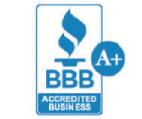

HALLOWEEN ORIG
inated in harvest festivals, and some seasonal fruits and vegetables, especially pump kins and apples, are part of today’s celebrations. Histor ically, symbols of the season included other plants.
We may think of jack-o’-lan terns as strictly pumpkins, but they come from a legend of a man who wanders the earth for eternity with a lantern carved out of a turnip to light his way. Decorative Hallow een lanterns were made in many other forms, like this papier-mache pear lantern shaped like a fall fruit that sold for $3,000 at Bertoia Auctions.
Halloween lanterns con structed from papier-mache and pulp experienced their popularity during the 1930s to the 1950s in the U.S. Pump kin- or gourd-shaped lanterns, along with cats, witches and devils, were much more common than pears, which makes this lantern a rare find.
Textures and designs were made more pronounced using papier-mache pulp. The eyes and teeth viewed through the cutout openings are on a sep arate piece of paper slipped inside the lantern. Used as lanterns with burning candles inside, they are highly flam mable, adding to the rarity of this lantern’s existence.
Q. I have a 1931 four-burner gas stove with three drawers and an oven. It is the Wedgewood model by Monogram. It is a creamy yellow color with dark edges. It is clean and in excellent condition. I was hoping to sell it for $4,500.
A. Wedgewood stoves were made in the 1930s, 1940s and 1950s. James Graham opened the first Wedgewood factory in 1919, and the company survived for several decades, known for their products’ quality and durability. Some were also sold under the
name Wedgewood-Holly, but the brand disappeared by the early 1970s. Restored Wedge wood stoves from the 1930s are priced anywhere from $800 to $4,900. Recent com pleted sales are scarce. We found a 1930s Wedgewood stove that sold for $615 (with buyer’s premium) at auction.
Q. I bought a set of shrimp-pink colored Boontonware dishes in 1956. It has a trademark on the bottom: (r)1203-10 USA. Do they have any value?
Current prices are recorded from antiques shows, flea markets, sales and auctions throughout the United States. Prices vary in different locations because of local economic conditions.
Royal Doulton figurine, jack-o’-lantern with mouse peeking out, pumpkin stem on head, orange, yellow, brown, Royal Doul ton backstamp, G. Tongue, 1993-1997, 3 1/4 inches, $45.

Herend porcelain covered jar, Queen Victoria pattern, but terflies, blossoming branches, peonies, gourd form, domed lid with bud finial, marked, 6 1/2 x 6 1/2 inches, $185.
Jewelry, bracelet, cuff, gilt metal flower with ruffled petals and pearl center, four large faux pearls, glass faux jewel accents, all over gold tone beading and chain design, Chanel, inside measures 6 1/4 inches, $375.
Rug, hooked, stylized Conestoga wagon drawn by three pairs of horses, under flowering cherry tree, trees, clouds, birds, water wheel in background, 43 1/2 x 69 inches, $490.
Cane, boar’s tusk handle, tapered shark vertebrae shaft, silver mount, brass ferrule, 1800s, 35 inches, $555.
Furniture, chair, Windsor, fan back, bow shape crest, scroll carved ears, seven spindles flanked by turned stiles, shaped seat, turned H-stretcher and legs, c. 1790, 37 x 23 inches, $615.
Glass centerpiece bowl, clear, round, Seafoam design on cen ter, David Dowler for Steuben, c. 1982, 3 x 13 1/4 inches, $735.
Game, dominoes, square tiles, bone and ebony, multicolored symbols, four card suits and five pipped tiles, 28 pieces, $1,105.
Doorstop, figural, frog with wry smile, standing with hands on hips, cast iron, green paint, yellow details, wedge base, c. 1920, 8 1/2 x 4 1/2 inches, $1,845.
Weathervane, figural, baseball pitcher, in windup position, on directional arrow, copper, green patina, soldered seams, c. 1985, 24 x 35 1/12 inches, $6,150.
A. Boontonware was in spired by the indestructible dinnerware used by the U.S. Navy during World War II. Boonton Molding Co. began making the inexpensive, long-lasting plastic dishes in 1946 in Boonton, New Jersey. Since 2001, the dinnerware has been made in Ashtabula, Ohio, by GMR Technology. The simple designs are pop ular with the Amish and are sold by the case of 24. They are also popular at flea mar kets and garage sales and are sought by campers for their durability. A place setting for eight similar to yours recent ly sold for $45.
Q. I’d like some information on an accordion that has been in my family for a long time, always tucked away in a closet. It’s marked “Hohner Accordi on, Made in Germany.” It’s not in good condition. One side strap is broken, and the metal parts are rusted. Do you have any informa tion about its origins and value?
A. Matthias Hohner (18331902) was a clockmaker who began making harmonicas in Trossingen, Germany, in 1857. The company eventual ly became the world’s largest manufacturer of harmonicas. Hohner accordions were first made in 1903. The company was run by members of the family for several years. It is still in business, with head
quarters in Trossingen. Some Hohner accordions are now made in China and Italy. Musical instruments need to be played regularly to keep them in good condition. The interior parts, felt and glue will dry out eventually. An accordion that’s not in good condition, with rusted metal parts, is not worth much.
Q. I am strangely drawn to vintage hobnail double-arm table lights from the 1950s and 1960s. I think they remind me of visiting the houses of my aunts and uncles. What can you tell me about that style of light fixtures?
A. The hobnail milk glass pattern was introduced by the Fenton Art Glass Com pany at its glass factory in Williamstown, West Virginia, in 1939. By 1952, milk glass hobnail became Fenton’s flagship pattern. The design was made with clear and translucent colored glass as well. You can tell if the milk glass is truly an antique by holding it up to natural light ing. Real milk glass is slightly translucent. Antique milk
glass will have an iridescent rainbow in the rim of the glass. Double-shade hobnail milk glass and brass student lamps sell for less than $100.
TIP: Old linens can be bleached occasionally, but frequent bleaching will weaken the fabric.
Terry Kovel and Kim Kovel answer readers’ questions sent to the column. Send a letter with one question describing the size, material (glass, pottery) and what you know about the item. Include only two pictures, the object and a closeup of any marks or damage. Be sure your name and return address are included. By sending a ques tion, you give full permission for use in any Kovel product. Names, addresses or email addresses will not be pub lished. We do not guarantee the return of photographs, but if a stamped envelope is included, we will try. Questions that are answered will appear in Kovels Publications. Write to Kovels, The Republican, King Features Syndicate, 628 Virginia Dr., Orlando, FL 32803 or email us at collectorsgallery@kovels. com.
Terry & Kim Kovel | Antiques & Collecting Imagine seeing a glowing, grinning pear in the dark of night! This papier-mache lantern was an antique Halloween deco ration. (COWLES SYNDICATE INC.)The average long-term U.S. mortgage rate topped 7% for the first time in more than two decades this past week, a result of the Federal Reserve’s aggressive rate hikes intend ed to tame inflation not seen in some 40 years.
Mortgage buyer Freddie Mac reported Thursday that the average on the key 30year rate jumped to 7.08% from 6.94% the previous week. The last time the av erage rate was above 7% was April 2002, a time when the U.S. was still reeling from the Sept. 11 terrorist attacks, but six years away from the 2008 housing market collapse that triggered the Great Reces sion.
Last year at this time, rates on a 30-year mortgage aver aged 3.14%.
The Fed has raised its key benchmark lending rate five times this year, includ ing three consecutive 0.75 percentage point increases that have brought its key short-term borrowing rate to a range of 3% to 3.25%, the highest level since 2008. At their last meeting in late Sep tember, Fed officials project ed that by early next year they would raise their key rate to roughly 4.5%.
Many potential homebuy ers have moved to the side lines as mortgage rates have more than doubled this year. Sales of existing homes have declined for eight straight months as borrowing costs have become too high a hur dle for many Americans al ready paying more for food, gas and other necessities. Meanwhile, some home owners have held off putting their homes on the market because they don’t want to jump into a higher rate on their next mortgage.
Popowich Family Investments LLC, to Popco Real Estate LLC, 66 Ramah Circle South, $450,000.
Christopher R. Mader to David North, 88 Doane Ave., $283,000. Hillside Development Corp., to Nicholas Charles Alvanos and Danielle Nicole Stark, 123 Nicole Terrace, Lot 11, $760,000.
Jeanne M. Hartmann and Chris topher M. Hartmann to Aleksandr Poddubchak, 94 Katharine Drive, $450,000.
Kristyne K. McPhee, representative, Darlene A. Wage, estate, Lyn A. Porter and Lyn Porter to Peter J. Hopkins and Ashley Flouton, 67 Red Fox Drive, $175,000.
Ralph DePalma to Tina M. DePal ma, South West St., $150,000.
Raymond Lapointe to Daniel R. Bowles, 34 Harvey Johnson Drive, $331,000.
Scott T. Rhodewalt and Susan H. J. Rhodewalt to Ian T.M. Rhodewalt and Courtney Jean Cullen, 422 Pine St., $100.
Tony J. Ribeiro and Tony J. Rebeiro to Benjamin Nyzio, Sabin Street, $37,500.
Richard A. Dube to Richard A. Dube and Theresa J. Cadieux, 161 Federal Street, $100.
Thomas A. Weston Jr., to David Van Vlierbergen, 5 Laurel Ridge Road, $547,000.
Valerie L. Fontaine, representative, and Shirley A. Lapierre, estate, to Nilda E. Medina, 189 Old Stur bridge Road, $149,000.
Suzanne Lemarier and James A. Lemarier, estate, to Rory M. Mason and Nicholas R. Mason, 424 Route 20, $295,000.
Claire M. Bigos, trustee, William Bigos, trustee, and Bigos Family Trust, trustee of, to Ronald Baltha zar and Isemonde Balthazar, 246248 Grattan St., $360,000.
Daniel C. Domurat to Lavish Invest ments LLC, 27 Regency Court, Unit 21, $249,900.
Daniel J. Nute and Susana P. Nute to Rehab Home Buyers LLC, 24 Hartford St., $118,000.
DDN Property Group LLC, to Koi 2 Koi Associates LLC, 41 Robbins Road, $310,000.
Deborah A. Fortin to Jenise A. Jaworski and Jenise Jaworski, 131 State St., $255,000.
Donald R. Turcotte and Sharon A. Turcotte to Amy Aline Lambert, 71 Yorktown Court, $220,000.
Edward A. Ziemba, Katherine Rybak, Albert Rybak and David Rybak to RM Blerman LLC, 101-103 Cochran St., $400,000.
JCG Investments LLC, to Ryan Hawley and Clarisa Hawley, 191 Lafayette St., $283,000.
Jessica Duga and Patricia A. Berwaldt to Michael J. Doherty and Carrie A. Doherty, 83 Boucher Circle, $244,500.
Joseph M. Yiznitsky and Sheena I. Yiznitsky to Michael Murdock Jr., 1206 Grattan St., $358,000.
Maryjane Kopie to Brooke Chisholm, 63 Bemis Ave., $265,000.
Mesa Enterprises LLC, to Ceo Real ty LLC, 688 Prospect St., $217,500. Pah Properties LLC, to Bohombe Lawi and Neema Ebuela, 155 Hampden St., $275,000.
Sally A. Jones to Elaine Papillon, 114 Kelley Road, Unit X16, $190,000.
Stephen Nembirkow and Ann Ma
rie Dasilva Nembirkow to Allen E. Edwards and Latanya M. Edwards, 52 Morgan Circles, $515,000.

Susan Gazda to Johnny McClease, 181 Wheatland Ave., $245,000.
Volodymyr Boyko to Mohammad Rafiq and Sana Rafiq, 20-22 Clar endon Ave., $460,000.
Kaimei Zheng to Haitao Zhang, 98 Whately Road, $625,000.
Timothy D. Cary, trustee of the Sally J. Cary Irrevocable Trust, to Lynn A. Olynik. 35 Thayer Street. $405,000.
Ragus LLC, to Timothy D. Cary, trustee of the Sally J. Cary Irrevo cable Trust, 2B Gray Lock Lane, Unit 32B Sugarloaf Condominium, $451,500.
Charles T. Lanigan and Sandra J. Lanigan to Carol Ann Boardway Chapin and Michael B. Chapin, 136 Pinehurst Drive, $369,900.
John Pappas and Danielle Pappas to Wenfeng Wang and Meizhen Sun, 9 Harris Drive, $360,000.
Nathan J. Lavallee and Taylor S. Lavallee to Jeff House and Ashley Marchand, 49 Speight Arden, $361,000.
Pah Properties LLC, to Allison A. Gioielli, 79 Prospect St., $310,000.
Carol J. Graham to Aaron O. Reyes, 98 Lovefield St., $370,000.
Trevor A. Tompkins and Tessa A. Tompkins to Larissa A. Haliw, 3 Applewood Circle, $430,000.
Walter C. Nichols and Beverly J. Nichols to John W. Sypek and Kris tina L. Sypek, 40 Rabideau Drive, $312,500.
Simone A. Cristofori and Michael D. Driscoll to Wozniak Enterprises
LLC, 7 West Main St., $380,000.
Charles W. Nash, individually and as personal representative of the Estate of Kornell R. Nash, to Mauria Sirum, French King Highway, “aka” Route 2, $12,500.
Patricia L. LeClair, Raymond E. LeClair and Patricia L. LeClair, attorney-in-fact, to Andrew Ryan and Gabriella Morales, 30 Smith Ave., $350,000.
Steven R. Pelletier and Kristin S. Loiko to Diana Adair and Rob ert Howard Adair, 19 North St., $413,560.
Stephen J. Polchlopek to Beverly Witter and Anthony Conchinha, 55 Forge Pond Road, $25,000.
Brenda Robert to Brenda Robert and Alicia Volel, Pleasant Street, $100.
Loay Barden, Loay Hemeedi and Kimberly Sheppard to Paula LeClair and Dennis LeClair, 7 Lane brook Circle, $250,000.
Jayden B. Cowles to Nathaniel Sindland and Amanda Fountain, 776 Main Road, $315,000.
Greenfield Redevelopment Author ity to Valley Precision Parts Corp., Adams Road, $5,000.
Adri L. Bekker and Michael J. How es to OV Properties LLC, 41 Princ eton Terrace, Unit 41 Meadowview Manor Condominium, $147,000.
Rebecca Snow Kowal to Laurie Newsome and Susan Pennison, 104 Leyden Road, $265,000.
Tarsis T. Theofanidis to Teresa Mar tinez and William M. Waldsmith, 29 Hastings St., $340,000.
Demosthenis Leristis to The Spar
Lock Days: 30-60. Annual percentage rates (APRs) are based on fully indexed rates for adjustable rate mortgages (ARMs). The APR on your specific loan may differ from the sample used. Fees reflect charges relative to the APR. If your down payment is less than 20% of the home’s value, you will be subject to private mortgage insurance, or PMI. FHA mortgages include both UFMIP and MIP fees based on loan amount of $165,000 with 5% down payment. VA mortgages include funding fees based on loan amount of $165,000 with 5% down payment.
tan’s Inc., 25 Main St., $350,000.
Heather E. Goodhind and Jason J. Goodhind to Melina Anne Master son, 5 Meadow St., $425,000.
Guoping Zhang and Yanli Zhao to Eric D. Tattersall and Michelle E. Casey-Tattersall, 11 Indian Pipe Drive, $711,000.
Gary R. Mayotte and Michele B. Mayotte to JVLV Realty LLC, 41-43 Somers Road, $585,000.
Vince C. Torchia, Stephanie L. Tor chia and Stephanie L. Collette to William J. Peterson III, and Patricia Peterson, 34 Meadowbrook Lane, $295,000.
Jill C. Tucker, personal representa tive, Stanley L. Symanski, estate, and Jill C. Tucker to Diamond back Properties LLC, 67 Elm St., $100,000.
Heath Katherine J. Killoran to Christopher L. Bradway, 8 Deer Run Path, $10,000.
Lynn A. Carboneau, “fka” Lynn A. McKinnon to James Middlebrook, 12 Cascade Drive, $64,900.
Andrew R. Weibel and Michael L. Menard-Weibel to Raymond Sullivan, 1698-1700 Northampton St., $407,500.
Bobby Joe Stovall and Carvel la Hayes-Stovall to Lamont Whitebear, 44 Claremnont Ave., $225,000.
Candia M. Athas to Wendreth A. Gregoire and Ronald J. Gregoire, 0 Elmore St., $49,900.
Candia M. Athas to Wendreth A. Gregoire and Ronald J. Gregoire, 27 Rugby St., $339,900.
Greater Springfield Habitat for Humanity Inc., to Jennifer Rolon, 117 Jackson St., $270,000.
Richard P. Courchesne and Bridget Courchesne to Servicenet Inc., 21 Claren Drive, $407,000.
William E. Welcome, represen tative, and William J. Welcome, estate, to James D. Giguere, 383 Apremont Highway, $199,500.
Ysaaca Axelrod and Peter Colon to AVI Holdings LLC, 313 Linden St., $235,000.
Daniel Schott to Jesse Meyers and
Carrie Meyers, 14 Barr Hill Road, $324,900.
Sonia E. Alvarez and Claudia Junqueira de Lima Costa to Paul Marquis, 30 Lead Mine Hill Road, $645,000.
Cynthia R. Wilson, trustee, Susan R. Flynn, trustee, and Pamela H. Rich Irrevocable Trust, trustee of, to Thomas R. Wilks and Meghan B. Wilks, 25 Berwick Road, $300,000.
Kathy L. Williams to Kara Brady, 75 Edgewood Ave., $340,000.
Matthew David Raymond and Kimberly Raymond to Tyler J. Oleksak and Crystal E. Miller, 38 E Primrose Drive, $585,000.
Tara S. Wolman to Nancy W. Wis semann, 11 Tabor Crossing, Unit 201, $312,000.
Wesley Henry Carter, Marcelli na Alexis Brown and Theodore Thompson Brown to Jennifer A. Lerch and Mario O. Perez, 250 Burbank Road, $327,000.
Antonio Leal and Diane Mastor akis Leal to Kathleen R. Newman, 308 Miller St., Unit 45, $395,000.
Benjamin J. McPherson and Sarah K. McPherson to Kelly L. Zwirblia, 36 Elm St., $269,500.
Carrie A. Doherty and Michael J. Doherty to Patricia LeClair, 665 Center St., Unit 604, $280,000.
Craig Abrahamson, Bryan Abra hamson and Brian Abrahamson to Carlene Archambault, 260 Ventura St., $102,000.
Jeffrey W. Newman and Kath leen R. Newman to Joshua L. Baez Vigo and Paola A. Marti nez-Ramos, 141 Edgewood Road, $386,000.
John A. Thomas, estate, and Philip R. Thomas, representative, to Jocelyn C. Wildman, 83 Green St., $270,000.
Diamond Real Estate Ventures LLC, to DMR Holdings LLC, 541 Center St., $375,000.
Manuel Palatino and Laurie Palatino to Thomas M. Vallee, 0 Kirkland Ave., $65,000.
Robert Irwin Maynard, Deborah Jean Maynard, Darlene Jean May nard, Laurie Jean Maynard, Ashley Jean Papuzynski and Alissa Jean Finnerty to Michael Maynard, 20 Austin St., $75,000.
ARPC LLC, to Brad Burlingham and Cheryl A. Burlingham, 11
Wales Road, $219,000. Dubs Capital LLC, to Francis Fijal, Hilltop Drive, $520,000.
Marion E. Talbot to Todd Michael Bonett and Jennifer Suzanne Thompson, 11 Robbins Road, $431,500.
Robert E. Martin and Robert J. Martin to Stephen G. Kent, 10 Emond Ave., $235,000.
Samantha L. Smith and Timothy M. Enman to Bo Qi Zhu, 66 Lake St., $311,000.
Thomas P. Caine to Nu-Way Homes Inc., 43 Summer St., $590,047.
Jane E. Bogan to Robert V.S. Redick and Kiran Asher, 35-37 Willow St., $265,000.
Carol M. Kittredge, personal repre sentative, Arlene C. Hines, estate, Robert S. Hines, Robert A. Hines, estate, and Robert Scott Hines to James M. Ryan and Brenda M. Ryan, 12 Leonard St., $149,000.
Edward Selke to Miriam Rodgers and Andrew Hamel, 53 Strawber ry Hill, $1,100,000.
Ryan D. Hoar to Susan D. Gersh win, 92 East St., $220,000.
Toni A. Gregoire, “aka” Toni A. Gregorie, and Joseph F. Zani to Stephanie A. Cook and Logan A. Rivers, 89 Wheeler Ave., $260,000.
Peter A. Rivers, trustee of Plains Roads Realty Trust, to G.L. M. Inc., 46 Daniel Shays Highway, $500,000.
Zachary M. Lizee to Kiernan Ryan Wilson, 137 Eagleville Road, $58,350.
Amy M. Zajac and Jeffrey A. Zajac to Meredith D. Rochette and Renee E. Rochette, 23 Fieldstone Drive, $420,000.
Louis D. Teixeira and Joanne A. Teixeira to Mandy Holmes, 9-11 Maple St., $260,000.
Palmer Town to Deer Haven Farm LLC, Ware Street, $27,500.
Palmer Town to Laura L. Lacrosse and Katie M. Lacrosse, Jim Ash Street, $57,000.
Kathleen M. Keyes to Dianne K. Tatro, 40 South Valley Road,
$290,000.
Brittany Vaughan to Amanda Lou ise LeClerc, 14 Oak St., $284,000. Eric Lacombe to Malia Home buyers LLC, 43 College Highway, $195,000.
Nationstar Mortgage LLC, and Mr Cooper to Julio Ayala, 28 Lakemont St., $84,000.
Richard E. Fiore Jr., to Eduardo Rosado and Rachel K. Tomarkin, 221 Granville Road, $310,000.
Anush Dawidjan to Christopher Seabrooks, 235 State St., Unit 417, $170,000.
Carmino J. Demaio Sr., Gerald A. Demaio and Alphonse Demaio to Alessandro Malafronte, 65 Palo Alto Road, $320,000.
Carol-Ann Boardway Chapin and Michael B. Chapin to Ellondy Har vey and Dwayne Harvey, 7 Matthew St., $354,000.
Federal National Mortgage Asso ciation and Fannie Mae to Zachary P. Nunnally, 61-63 Draper St., $200,000.
Donna L. Jordan to Siam Williams Investment Group LLC, WS May nard St., $195,000.
Duc T Le and Suong T Bui to Mar ilyn M. Valenti and Emily E. Hart, 36 Lumae St., $245,000.
Eagle Homebuyers LLC, to Todd Fredric Johnson, 76 Keith St., $256,900.
U S A Housing & Urban Develop ment, to Ronald Scott and April Y. Boyd Scott, 101 Vadnais St., $148,000.
Jason Donaldson, trustee, and Etabav Realty Trust, trustee of, to Rachel Lightfoot, 42 Brewster St., $325,000.
Jorge R. Rivera to Nicole Ashley Santiago, 23 Hicks St., $272,000.
Kirk Craigg and Kadian P. James to Delinas Ramos Maldonado and Efrain Gines-Garcia, 48 Gladstone St., $192,000.
Locah Y. Allemany to Chantelle M. Jack, 132 Miller St., $229,999.
Marisa Solano to Joseph Olayiwola and Stella Olayiwola, 189 Essex St., Unit K, $160,000.
Mark G. Laushway and Pamela J. Laushway to Isan Diaz, 77 Gates Ave., $391,000.
MGC Realty LLC, to Ackeem J. Donaldson, 79 Keith St., $340,000.
Michael J. Mateski to Dominic Kirchner II, trustee, and Matahari Realty Trust, trustee of, 152 Shady Brook Lane, $99,000.
PFGC LLC, to Clara Rodriguez, 40
Wellesley St., $240,000.
Quang V Huynh, Anhthu Huynh and Nathan Quang to Jose Blanco, 71 Copeland St., $243,000.
Rachel Anne Purcell to Michelle Gama, Jacob M. Bates and Jacob Bates, 14 Derryfield Ave., $270,000.
Richard I. Hill to Richard I. Hill and Michael J. Begley, 92 Cornell St., $20,500.
Robert Paskins and Sherma Paskins to Myria E. Oliveras Marti nez, 34-36 Tracy St., $310,000.
Robert W. Dennis, estate, and Janet Gordon, representative, to Camilla Miller, 38 Hillcrest St., $24,000.
Samantha M. Thompson and Jose R. Diaz Jr., to Randon Mazzie and Alison Klocek, 157 Canterbury Road, $430,000.
Sarah E. Prats to Hope MacDon ald, 38 Nassau Drive, Unit 38, $210,000.
Sheila Rivera and Sheila Rios to Mint Realty Group LLC, 52 Free man Terrace, $175,000.
SRV Properties LLC, to Angie J. Acevedo and Dolores E. Davis, 20 Lexington St., $310,000.
Stephanie Simpson, Stephanie P. Bond and Napoleon Simpson to Benicio Rodriguez Jr., and Yvette Gonzalez, 60 Littleton St., $220,000.
Stewart T. Hillios and Carol A. Hillios to Galo-Harp LLC, 101 Mul berry St., Unit 210, $72,000.
Stewart T. Hillios and Carol A. Hillios to Galo-Harp LLC, 101 Mul berry St., Unit 407, $63,000.
Thomas R. Connery and Jessica B. Connery to Glenn M. Pittsinger, 44-48 Superior Ave., $225,000.
Timothy J. Kirsch and Brooke Kirsch to Doms Home Improve ment LLC, 103-105 Massasoit St., $200,000.
Veronica Gasque Irrevocable Trust, trustee of, Dalles Gasque, trustee, and Clarence Whitley to Mikaelle S. Hyppolite, 131 Yale St., $245,000.
Gerald M. Magistri and Wendy L. Magistri to Matthew Jablonski and Jessica Jablonski, 7 Sichols Boulevard, $175,000.
Jaelyn M. Bacon to Arthur Ferrara, 4 Brows Beach Road, $180,000.
Megliola Realty LLC, to Joyce Bois vert, 7 Spring St., $139,000.
Wieslaw Modzelewski, Alicia Mod zelewski and Alicja Modzelewski to Chu Jose Perez-Martinez, 27 Pulaski St., $170,000.
Elizabeth M. Zulkiewicz to Robin Sager, 24 Marjorie St., $175,000.
James F. Brady Jr., and Lola M. Brady to Lisa Pepin, 23 Farley Road, $129,000.
Cristalee Burgos to Zafar Takhsi lov, 71 Russell St., $265,000.
Glenn R. Demarco to Ahmed Al Salame, 33 Baldwin St., $225,000.
Kimberely M. Allard, Kimberely M. Bielanski and William Allard to Kenneth Gagnon Jr., and Michelle Gagnon, 62 Salem St., $399,900.
Lynn H. Kane and James J. Kane to Andrew Peltier and Emily R. Leb lanc, 451 Rogers Ave., $400,000.
Michelle Gagnon, Michelle A. Kupras and Kenneth Gagnon to Byron A. Zinn, 29 Armstrong St., $240,000.
Patricia A. Raymond and Michael A. Talbot to Ayman Nijim, 18 Squassick Road, $342,500.
Richard Vasconcellos and Denise Vasconcellos to Claire A. Lebeau and Ryan J. Lebeau, 36 Beauregard Terrace, $550,000.
Ryan Lebeau and Claire A. Lebeau
Don & Dave Runyan | Project of The Weekto Michael D. Rheaume and Robin M. Rheaume, 66 Sikes Ave., $487,000.
Walter S. Wood LLC, to Salam on Realty LLC, 139 Myron St., $1,450,000.
Christopher A. Cole to Natalie Rucker, 419 Southwick Road, Unit B-7, $270,000.
John C. Alexopoulos, Veneta C. Tatakis, Anna Alexopoulos and Neke Alexopoulos to Magali Verdugo Vinces, 85 Furrow St., $325,000.
Mark L. Bonavita and Wendy Yelle to Tatiana Litvac, 94 Orange St., $185,000.
being taken care of.”
Pinhas Rabenou to Kelvin Mu niz-Roque and Brenda Ilarraza Sierra, 13 Vincent Drive, $335,000.
Sean S. Sullivan to Ernest Rental LLC, 151 Franklin St., $180,000.
Vitaliy Covileac and Vitalie Covil eac to Kristen L. Halpy, 11B Notre Dame St., Unit B, $260,000.
Westfield City to Nextgen Construction Service Inc., and Next Gen Roofing, 17 Sackett St., $45,000.
Arnold G. Levinson to Janna Ugone, 37 Pine Island Lake, $400,000.
Michelle Robidoux and Nessim J. Watson to Nessim J. Watson, 257 Long Plain Road, $98,022.
Justine Pasiecnik, personal repre sentative of the Estate of James M. Pasiecnik, to Christopher A. Green and Katelynn McKinnon, River Road, $55,000.
AC Homebuilding LLC, to Theodore J. Lerud and Christina M. Lerud, 1226 Stony Hill Road, $572,405.
Philip M. Pin and Marybeth J. Pin to David E. Sonnefeld and Pamela W. Sonnefeld, 15 Briar Cliff Drive, $645,000.
ALTHOUGH IT MAY not be obvious at first, when you think about it, sewing is a lot like woodworking. Both require specialized tools and supplies, not to mention time, patience and hard-won skill. And, just like wood working, sewing transforms raw material into useful and beautiful things. There is one big difference, however. Many woodworkers have dedicated space for their hobby, while most sewing projects wind up spread out on the dining table. This easy-to-build sewing cab inet project makes any room a sewing room, no matter where you live. It has space for a sewing machine, notions, patterns and more, plus a big, fold-out tabletop for mea suring and cutting. When it’s time to put everything away, the whole project transforms
into a handsome cabinet, and casters make it easy to move it from room to room. Made from birch (as pictured; other species will work as well), the cabinet measures 36 inches long by 20 inches wide by 31 inches tall when closed. When open, the tabletop is 72 inches long by 20 inches wide.
The Sewing Cabinet plan, No. 887, is $9.95 and includes step-by-step instructions with photos, full-size traceable pat terns, construction diagrams and a materials list and cutting layout. Please include $3.95 for postage and handling and allow about two weeks for delivery.

To order, send this article with a check or money order to U-Bild Features, c/o The Republican, 741B Olive Ave., Vista CA 92083. To order by credit card, visit U-Bild on the web at u-bild. com.
In England, where Victorian homes became the preferred setting for 19th-century ghost stories, shoddy construction added to the impression that many of them were haunted, says Simon Cooke, senior editor of the Victorian Web. He explains that the period’s rap idly growing cities and lack of building regulations led to poor workmanship that could be misconstrued as supernatural. Mysterious banging and groan ing inside the walls, for exam ple, could be a restless spirit - or perhaps badly installed pipes. The creaking of floorboards might be footsteps from beyond the grave — or the expanding and contracting that occurs in poorly built structures. Doors that popped open by them selves could have been pushed by phantoms — or maybe they just didn’t fit properly in their frames. The potent gas used to light the houses, coupled with the lack of ventilation, might have led to another ghostly effect. “[The homes were] full of toxins,” Cooke says. “Ingest too much of that in an enclosed space, it’s not implausible you could suffer delusions.”
During the Victorian era, spiritualism came into vogue thanks to acts such as the Fox sisters, whose career perform ing public seances began with convincing neighbors that their home was haunted. At the same time, a literary tradition
of setting ghost stories inside ordinary houses emerged, with Charles Dickens among its leaders. It’s not as if spooky sto ries didn’t exist before, Cooke says, but they would have often been set in places such as cas tles. During the Victorian peri od, audience preferences began to shift: “Most of the readers were middle class, and they didn’t know anything about aristocratic castles. . . . People wanted to read about ghost sto ries in their own homes.” When Victorian architecture fell out of fashion, its eerie associations only became more pronounced. During her research into the archetype of the haunted Victo rian, Burns, the Indiana Univer sity professor emerita, focused on the period in the 1920s when Edward Hopper painted “House by the Railroad” and other artists were rendering similar works. Hopper’s famous piece “has a presence, and it seems a bit, well, creepy, to use that good adjective - looming over the tracks with its man sard roof and all the Victorian embellishments,” Burns says. “And I just wondered, ‘Why a Victorian house? What did this painting mean?”
She dug into the cultural tastemakers of the time, such as magazine writers and architec tural critics, and discovered a nearly unanimous disdain for Victorian homes: “The terms in which they described them and condemned them were so, so very negative and so scornful and so anxious,” Burns says. They also tended to cast the style as feminine and foreign, attributes that held a negative
connotation then, as they fre quently still do. A smattering of the descriptions Burns found: “piles of excrement,” “an abyss of taste” and “ostentatious and arrogant ugliness.” Architect Joy Wheeler Dow characterized the 1870s as a “reign of terror” when it came to home aesthet ics. Why such over-the-top disgust?
These critics drew a con nection between the Victorian period and the Gilded Age, which they considered a time of corruption and immorality. By the 1920s, “there was a drive towards efficiency and econ omy and hygiene, all of which come together in the increasing phasing out of the Victorian house and, ultimately, the fear and loathing of the Victorian house,” Burns says.
As people with means moved out of Victorians, many of the homes became boardinghous es for the lower and working classes, which further cement ed them as cultural markers of decline. Any chance of a reputation rehab for the style all but vanished in 1960 — the year that Alfred Hitchcock’s “Psy cho” debuted. The fact that the threat inside Norman Bates’s house was human, not super natural, made Victorians even more terrifying, says Lowen stein, the film professor. In his view, the house in the movie became a symbol of the way the past can trap us in obligation to “things that are no longer there in a living sense, but are very much there in a sort of haunted psychological sense.”
“There’s an architecture,” he says, “for every nightmare.”
ANGELA RUSH AL
ready has the 12-foot Home Depot skel eton, and a whole bunch of regular-size ones, too. She has a nearly full-size hearse carriage drawn by skel eton horses, a massive taran tula, a 12-foot pumpkin-head ed “inferno” skeleton, a dragon and numerous light up pumpkins. She has so many Halloween decorations that she has to rent a storage unit, and each year she must hire a moving truck to bring them all to her home. She didn’t need anything else.
“My Halloween decorating has gotten so kind of out of hand that I’m like, I’m not doing it anymore,” says Rush, 51, who lives in Augusta, Ga. She resolved not to be tempt ed by any other plastic ghouls or goblins. Even if they were on sale.
That was until she found out about the Home Depot’s new 9 1/2-foot animatronic werewolf.
“I was like, ‘Hold on. Hal loween’s back on.’”
She saw him and she had to buy him: A beefy, sinewy wolfman with massive hands (paws?), glowing eyes and, un der his shredded buffalo-check shirt, six-pack abs. Best of all, and unlike his skeletal brethren, he talks and moves - with a growl, he opens his mouth to reveal a row of sharp fangs, tilts his head back and ... aroooooooooo!
Rush bought the $399 werewolf on “Orange Fri day,” which is what the most dedicated of Halloween decorators call the day Home Depot makes its Halloween decorations available online for purchase.
“I was so excited when I got him that I set him up in my house,” says Rush, which was almost a problem when the werewolf couldn’t fit through the door, and had to be disas sembled again. But she loves him. Her teenage son loves him. Everybody loves him, except her two huskies, who regard him with suspicion.
Two years ago, Home Depot
made a skeleton taller than God and changed Halloween forever. How do you follow that up? Not with a talking skeleton (too predictable) or a taller skeleton (may topple in high winds), but by expanding into an entire multiverse of gi ant spooky creatures: There is now a witch who appears to fly on a 12-foot broomstick, and a 15-foot phantom. But it’s the werewolf who seems to have become the breakout hit.
“People are used to the skel etons now. They’ve seen all of that. And this is something different,” says Jill Houser, 48, who has an elaborate werewolf campsite complete with a tent and body parts set up in her Pittsburgh front yard.
Jennifer Corcoran, 44, of Nashville, is the moderator of several Facebook groups dedicated to large-scale holiday decorating, including a 50,000-member, 12-foot skeleton group. Rumors began bubbling up that the werewolf would be part of the store’s Halloween lineup, but it was a tightly guarded secret.
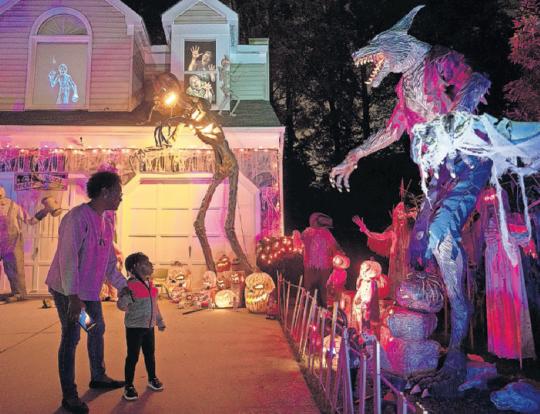
Until some photos from a Home Depot conference leaked last spring. Right as Corcoran was at the hospital being prepped to go under anesthesia for back surgery.
“I sent it over to Lance” — that would be Lance Allen, the director at Home Depot responsible for the brand’s pantheon of giants, with whom she is now on a first-name basis - “and was like, is this legit?” says Corcoran. It was, he confirmed. A nurse came to take her phone and wheel her into surgery.
“We all were like rabid fiends trying to get it,” says Holly Agouridis, 50, of her fellow Facebook-group haunters. “I do kind of a cornfield-type scene on one of my [yard] sections, and I was like, ‘He’s definitely going to go there.’ “ Gregory McAdams, 48, is a big werewolf guy — “I actually just had a werewolf tattoo put on my arm Wednesday” — who counts “The Wolfman” among his favorite movies. So the prospect of a werewolf joining his 12-foot skeleton was pretty thrilling. The were
wolf had surpassed what was formerly his favorite decora tion. “He’s my number one now,” says McAdams.
Over in Waltham, Mass., Billy Gridley, 47, ordered one online, and then ordered a backup wolf to be shipped to the store, just in case some thing went wrong.
Unfortunately for Jim Nelson and his 6-year-old-daughter Evelyn, the werewolf (named “Mr. Howly”) arrived broken, with his jaw detached from his head. Not to worry: “I made a muzzle for him,” says Nelson, 41, of Erie, Pa. “I cut up an old leather belt and then just kind of glued it on his head.”
And not everyone has been so keen. Melissa Hayden, 52, of Pittsboro, N.C., has a neighbor who complained to her homeowners association about her werewolf, whom she loves.
“They said it was too scary” for their grandchildren,” says Nelson, who was flummoxedshe’s one of those people who keep their 12-foot skeleton up all year round, dressing him up in costumes for every holiday, “in my yard 24-7, 365 days a year.” The neighbors had nev er complained about that.
Werewolves occupy a partic ular place in the horror genre, says Bryan Fuller, writer and executive producer of nu merous TV shows, including “Hannibal” and “Pushing Dai sies” — and also a proud Home Depot werewolf owner.
Part of the reason the werewolf is a hit also may be that it’s an underrated monster. There aren’t that many werewolf movies — “The Wolfman,” “An Amer ican Werewolf in Paris” and “Werewolf of London” — and werewolves are often relegat ed to supporting characters, as in the “Twilight” movies. Or, they’re written for laughs, like the werewolves of “What We Do in the Shadows” (“We’re werewolves, not swear wolves!”), especially when the werewolf’s transformation is a metaphor for puberty — think “Teen Wolf,” or “Werewolf Bar Mitzvah,” one of the greatest bits in “30 Rock.”
“The horror of losing control
of your body and having it be taken over by your bestial self is something so terrifying,” says Fuller, “It comes full circle around to humor.”
This summer, Troy Sager found himself “really drooling over that werewolf.” Sager, 54, of Arthur, N.D., wanted to add to his collection of spooky de cor, which he enhances with a few DIY elements. Sager took a mannequin half-torso, dressed it with pants, used spray foam to simulate entrails, and covered the whole thing in splattered blood, splaying it out at the wolf’s feet. “It looks like the werewolf kind of had a little meal,” he says. A daycare center down the street allegedly brought the kids by to check out his display, which also includes a 12-foot skeleton and an Inferno, and he didn’t hear any screaming. “I’m sure a lot of them enjoyed it,” he says.
Houser employed similar techniques for her elaborate werewolf campsite. Branded “Camp Carnage,” her talking wolf holds a battered body and a fistful of foam guts. He’s joined by another, smaller, sta tionary werewolf and a zombie mannequin that Houser cov ered in fur, emerging from a tent: “He’s transitioning. He’s still a person but turning into a werewolf,” she says.
Meanwhile, in Rantoul, Ill., Nikia Hults, who had gone to every Home Depot within a
2 1/2-hour radius of her home and crossed state lines to get her wolf (“We just call him Wolfie”), enlisted her moth er-in-law to sew him a new outfit. She picked out some neon green fabric — “I thought green would kind of set him off and kind of make everything cohesive” — and Wolfie got a brand-new size XXXL shirt. Other werewolf parents have done creative displays with Three Little Pigs or Little Red Riding Hood themes. Next year, Corcoran thinks even more people will branch out into elaborate werewolf dis plays: Expect “Thriller” were wolves, Teen Wolves, and, from “30 Rock” fans who want to play to a niche audience, wolves wearing yarmulkes. Over at Fuller’s house in the Silver Lake neighborhood of Los Angeles, the werewolf is situated in a graveyard scene beyond his driveway. He strug gled putting his wolf togetherfor a while, it was just a pair of disembodied legs, which was both spooky and funny in its own way.
But once he was assembled, Fuller has enjoyed returning home from late nights at work to be greeted by the blinking eyes of Kevin. That’s his were wolf’s name. Most of the time, he’s just a regular dude, says Fuller, except when the moon is full. “There’s something funny about calling a were wolf Kevin.”
Patricia Isaacs and her granddaughter Taryn Isaacs, 2, look at Halloween decorations in the front yard of Holly Agouridis’s Silver Spring, Md., home. (CRAIG HUDSON / WASHINGTON POST)


TERMS:

Bk 13984, Pg 473

3:00 PM-SPRINGFIELD
91 Dunmoreland Street sgl fam, 1,432 sf liv area, 0.14 ac lot, 6 rm, 3 bdrm, 1 bth, Hampden: Bk 14833, Pg 170
4:00 PM-SPRINGFIELD
31 Cottonwood Lane sgl fam, 1,059 sf liv area, 0.22 ac lot, 5 rm, 3 bdrm, 1 bth, Hampden: Bk 22007, Pg 431
the sum of $5,000.00 as a deposit must be

P.C.













